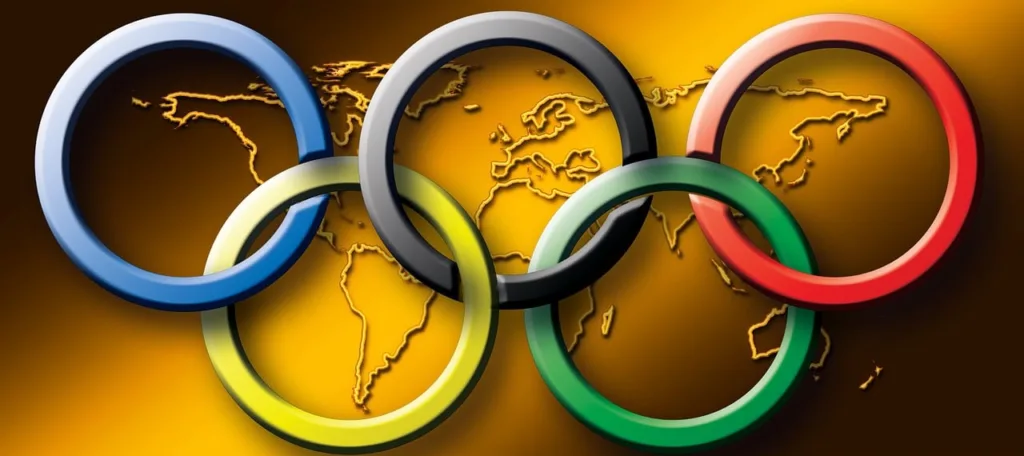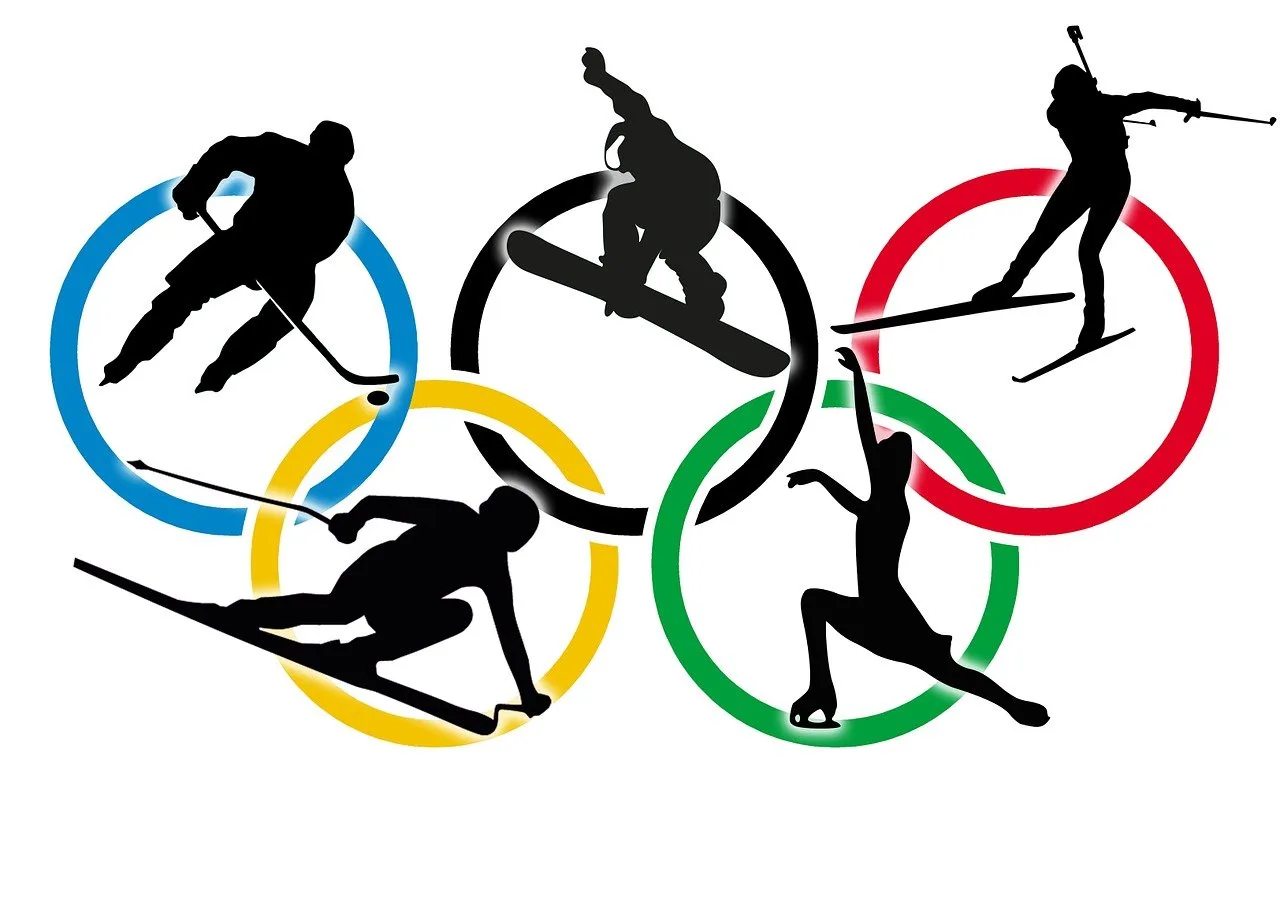Table of Contents

Introduction of The Olympic Games
The Olympic Games, often referred to as the Olympics, are a global sporting spectacle that captivates the hearts and minds of millions of people every four years. These quadrennial events showcase the epitome of human athleticism, dedication, and the pursuit of excellence. As we eagerly await the next Olympic Games, it’s worth taking a comprehensive journey through their rich history and exploring the profound impact they’ve had on our world.For any future and current update you can check Olympic games official website https://olympics.com/
The Birth of an Idea
The concept of the Olympic Games was born in ancient Greece around 776 BCE, in the small town of Olympia. These ancient games were dedicated to the Greek god Zeus and consisted primarily of athletic contests, including foot races, long jumps, and discus throws. The games were held every four years and quickly gained popularity, becoming a symbol of Greek unity and cultural identity.
A Symbol of Unity and Peace
One of the most remarkable aspects of the ancient Olympics was the “Olympic Truce.” In the spirit of fostering peace, warring city-states would temporarily cease hostilities during the Olympics games. This tradition of using sports as a means of promoting peace and unity has endured through the centuries and is a fundamental principle of the modern Olympics. The International Olympic Committee (IOC) upholds this tradition by encouraging nations to put aside political conflicts and come together in the spirit of competition.
The Modern Revival
After a long hiatus, the Olympics were resurrected in the late 19th century by Pierre de Coubertin, a French educator and sports enthusiast. He believed that sports could help bridge cultural and political divides, and he sought to reinstate the Olympic Games on an international scale. In 1896, the first modern Olympic Games were held in Athens, Greece, marking the beginning of a new era in sports and international cooperation.
The Symbolism of the Rings
The iconic Olympic rings, a symbol recognized worldwide, were introduced in 1913. The five interlocking rings represent the five continents of the world—Africa, the Americas, Asia, Europe, and Oceania—coming together in the spirit of competition and friendship. The colors of the rings (blue, yellow, black, green, and red) were chosen because every nation’s flag contains at least one of these colors. This symbol serves as a powerful reminder of the universality of the Olympic Games, transcending borders, languages, and cultures.
Breaking Barriers and Setting Records
Throughout its history, the Olympic games have broken down numerous barriers. In 1900, women were allowed to participate for the first time, marking a significant step towards gender equality in sports. Over the years, athletes from diverse backgrounds and cultures have risen to prominence, showcasing their incredible talents on the world stage. From Jesse Owens shattering racial barriers in 1936 to the bravery of the Refugee Olympic Team in recent years, the Olympics have consistently championed inclusivity and diversity.
The Olympics Today
Today, the Olympic Games have evolved into a multi-sport extravaganza, featuring a wide range of events that push the boundaries of human achievement. From the grace of gymnastics to the endurance of the marathon, the Olympic games inspire us to push our limits and celebrate the human spirit. The Paralympic Games, which have been held in conjunction with the Olympics since 1960, provide a platform for athletes with disabilities to showcase their incredible abilities, further emphasizing the Games’ commitment to inclusivity and diversity.
A Catalyst for Change
Beyond the world of sports, the Olympic games have played a significant role in influencing social and political change. The 1968 Olympics in Mexico City witnessed a powerful act of protest as American sprinters Tommie Smith and John Carlos raised their fists in a black power salute during the medal ceremony, drawing attention to racial inequality and civil rights. Similarly, the 1980 and 1984 Olympics were marked by political boycotts during the height of the Cold War, underscoring the Games’ ability to reflect and influence global geopolitics.
The Olympics as a Cultural Showcase
The Olympic games have also been a platform for host cities to showcase their culture, art, and heritage to the world. The opening and closing ceremonies often feature dazzling displays of music, dance, and visual arts, providing a window into the host nation’s cultural identity. From the ancient beauty of Athens to the futuristic innovations of Tokyo, each host city adds its unique chapter to the Olympic story.
The Legacy of the Olympics
The legacy of the Olympic Games extends far beyond the closing ceremony. Host cities often experience long-term benefits in terms of infrastructure development, increased tourism, and improved facilities for athletes and communities. However, the true legacy of the Olympics lies in the hearts and minds of the millions inspired by the dedication, sportsmanship, and camaraderie on display during the Games.
The Olympic Anthem and Oath
The Olympic Anthem and Oath are an integral part of the Games. The Olympic Anthem, composed by Spyridon Samaras, is played during the opening and closing ceremonies. The Olympic Oath, taken by an athlete and a judge on behalf of all participants, emphasizes the importance of fair play and respect for the rules.
The Olympic Flame and Torch Relay
A cherished tradition of the Olympics is the lighting of the Olympic flame and the torch relay. The flame is lit in Olympia, Greece, using the sun’s rays, and it symbolizes the purity of the Games. The torch relay, which carries the flame to the host city, involves thousands of torchbearers and signifies the journey of the Olympic spirit around the world.
ALSO READ ICC CRICKET WORLD CUP 2024 SCHEDULE , VENUES https://helpingblogs.com/icc-cricket-world-cup-2023-schedule-fixture-venue/
Olympic Values in Action
The Olympics uphold three core values: “Excellence,” which encourages individuals to strive for their personal best; “Friendship,” which fosters mutual respect and understanding among participants; and “Respect,” which promotes fair play and the spirit of sportsmanship. These values are not only celebrated during the Games but also resonate with people around the world, reminding us of the importance of integrity and cooperation in our own lives.
Economic and Environmental Impact
The economic and environmental impact of hosting the Olympics is a topic of significant interest. Host cities invest heavily in infrastructure, transportation, and accommodations, which can lead to economic growth and job creation. However, the environmental impact, including the construction of venues and transportation systems, is a concern. In recent years, there has been a growing emphasis on hosting sustainable and environmentally responsible Games.
The Global Reach of the Olympics
The Olympics have a global reach that transcends cultural, political, and geographic boundaries. Billions of people around the world tune in to watch the Games, making it one of the most-watched sporting events globally. The Olympics have the power to inspire and unite people, creating a sense of shared experience and celebration of human achievement.
Olympic Diplomacy
The Olympics have often served as a platform for diplomatic efforts and international cooperation. During the Cold War, the “Ping Pong Diplomacy” at the 1971 World Table Tennis Championships in China paved the way for improved relations between China and the United States. Similarly, the “Ice Hockey Diplomacy” during the 2018 Winter Olympics in South Korea led to a thaw in relations between North and South Korea.
The Olympics and Education
The Olympic Games have a significant impact on education. They provide opportunities for schools and educational institutions to incorporate Olympic values into their curriculum, teaching students about sportsmanship, excellence, and the importance of striving for personal bests. Additionally, the IOC supports educational programs that use sports as a tool for promoting peace and development.
The Influence of Olympians
Olympic athletes are not just champions on the field but also influential figures off it. Many Olympians use their platform to advocate for social causes and charitable initiatives. Athletes like Muhammad Ali, Cathy Freeman, and Nelson Mandela have left a lasting impact on society through their actions and advocacy.
The Challenges and Controversies
While the Olympics symbolize unity and sportsmanship, they have not been without their challenges and controversies. Issues such as doping scandals, concerns over the cost of hosting the Games, and allegations of corruption have posed significant challenges to the integrity and image of the Olympics. Addressing these challenges and maintaining the purity of the Games remains an ongoing mission for the IOC.
The Future of the Olympics
As we look ahead to the future, the Olympics face new challenges and opportunities. The IOC continues to adapt to changing times, exploring innovations such as virtual reality experiences and e-sports to engage with younger audiences. Additionally, discussions around sustainability, athlete welfare, and social impact are at the forefront of Olympic planning.
Conclusion: A Celebration of Humanity
In a world often divided by borders and differences, the Olympic Games continue to unite us. They are a celebration of our shared humanity, a testament to what we can achieve when we come together in the spirit of competition, respect, and friendship. As we eagerly await the next Olympics, let us reflect on the timeless values they represent and the enduring legacy they leave behind.
The Olympic Games have come a long way from their humble beginnings in ancient Greece, but their core principles remain the same: excellence, friendship, and peace. They serve as a reminder that, no matter the challenges we face, the pursuit of greatness and the power of unity can overcome all obstacles.
So, when the Olympic flame is once again lit, and athletes from around the world gather to compete, let us remember the history and significance of these remarkable games. The Olympics are more than just a sporting event; they are a celebration of the very best of humanity. Through triumphs and tribulations, they inspire us to reach higher, run faster, and strive for a better world.
IF YOU LIKE OUR ARTICLE YOU CAN ALSO READ OUR OTHER ARTICLES ON http://WWW.HELPINGBLOGS.COM THANKS FOR YOUR SUPPORT AND VALUABLE TIME.

[…] ALSO READ The Olympic Games: A Glorious Journey Through History https://helpingblogs.com/the-olympic-games-a-glorious-journey-history/ […]